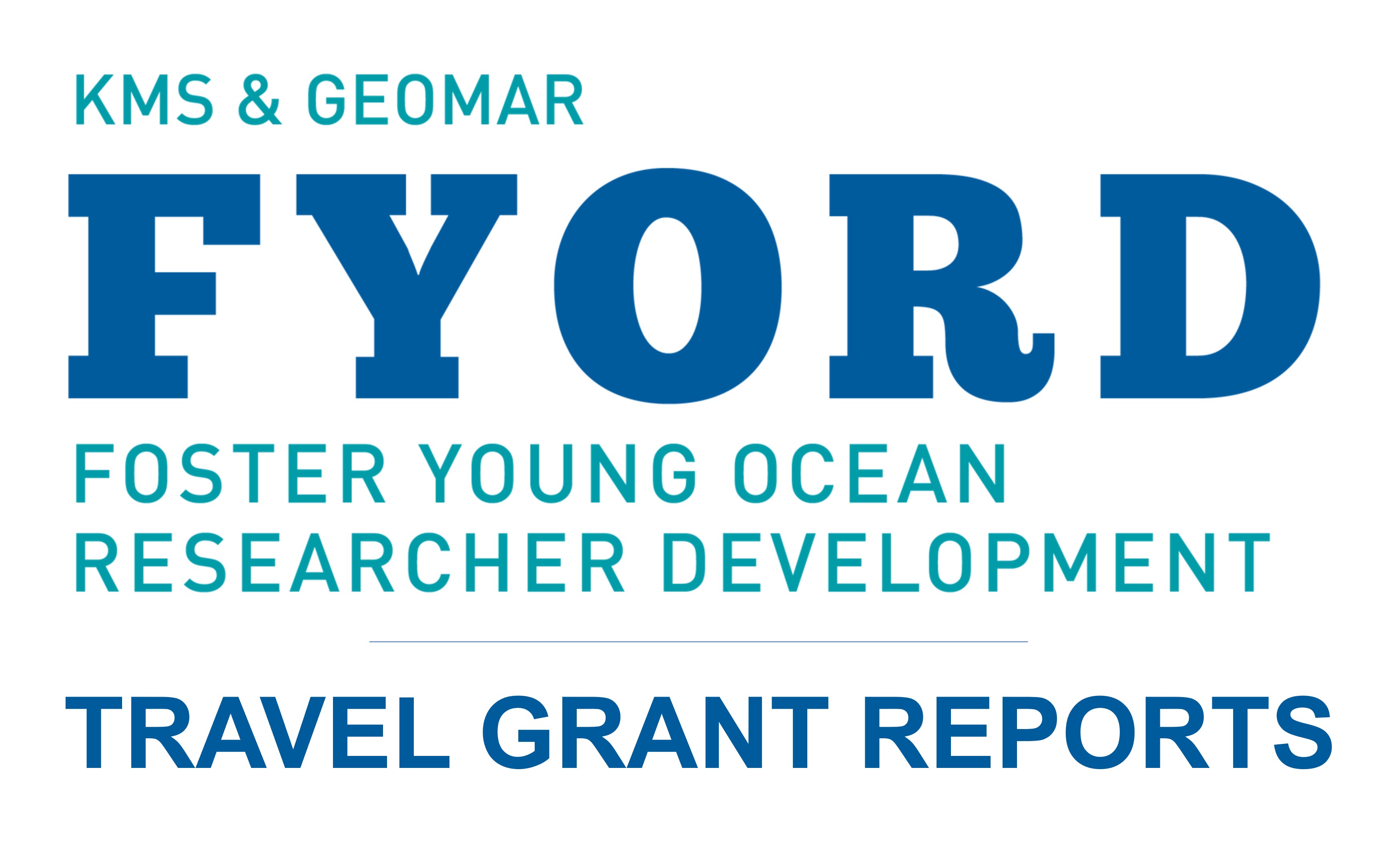International Temperate Reef Symposium, France
Oh boy- time to head to my first real research conference and present (for the very first time!) data from my PhD. The nerves? High. The poster? Printed (finally!) the weekend before. The train ticket? Booked. Yes, we decided to travel to Brest, Brittany in northern France by train – a journey that took 15 hours and included a sweat-inducing metro ride through Paris during a heatwave. Truly, a trip to remember! At least we had plenty of time to brush up on our rusty school French. Key phrases included “Un café, s’il vous plaît” and, of course, the ever-essential “Bonjour Madame/Monsieur” because manners matter!
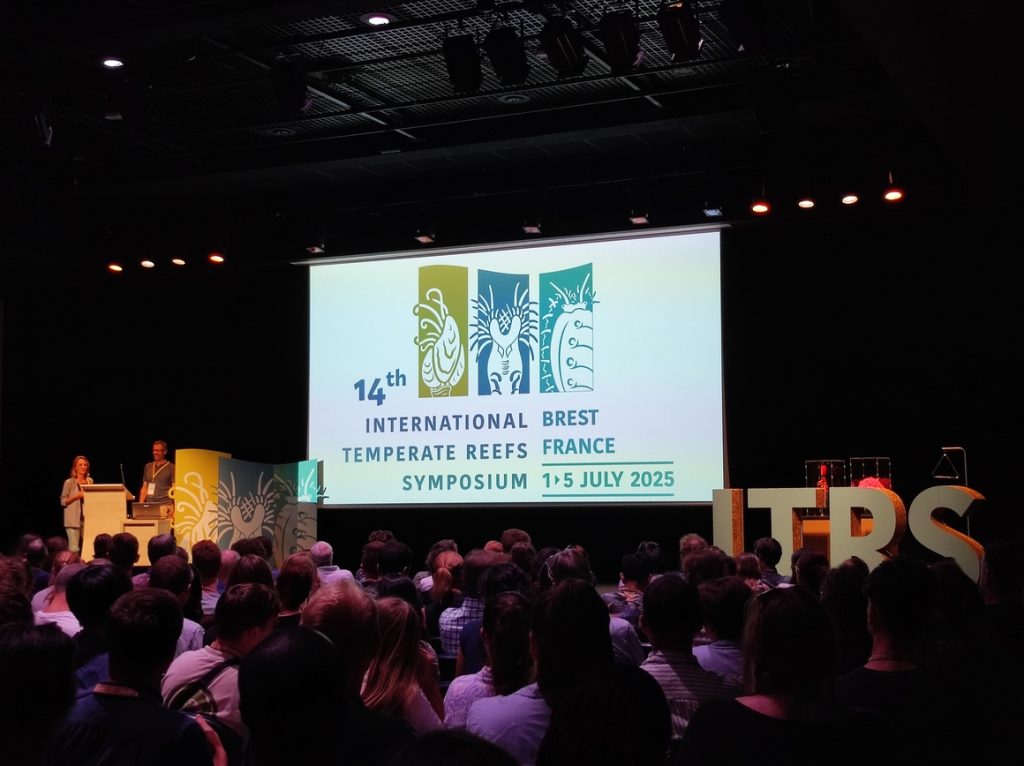
But wait – where are my manners? Hi! I’m Katja, a second-year PhD student in the Experimental Ecology group led by Frank Melzner at GEOMAR. My research focuses on the only predominant asteroid species in the Kiel Fjord: Asterias rubens (the common sea star) and how its immune system and associated microbiome are influenced by heat stress, all while being confronted by a mysterious disease that has spread throughout the population. I chose the International Temperate Reef Symposium (ITRS) as my first conference because of its strong focus on field monitoring, climate change, and good old hands-on biology. It felt like the right place for a sea star enthusiast like me. In hindsight, I was very surprised to find that out of 400+ attendees, I was the only person presenting a sea star-related topic. Even more surprising? The whole event felt less like a formal research conference and more like a relaxed reunion of old science friends hanging out in France for five days. As the organizers themselves put it: ITRS is like a semi-annual family meeting of a rather dysfunctional family. And honestly? It showed in the best way. From slideshows of legendary conference after-parties over the years, to wrap-up sessions that felt more like the Oscars opening ceremony (minus the red carpet and chic clothing, plus lots of ecology jokes and heartfelt tributes to legendary researchers), it was as entertaining as it was surprising. As mentioned, I was the lone sea star voice in a sea of kelp talk, but don’t get me wrong, I met so many lovely people, especially those passionate about kelp and kelp restoration, that I couldn’t help but get drawn in myself. Ecologists, and especially algae ecologists, are truly relaxed and kind people. That’s takeaway #1 from the whole experience. Takeaway #2 is that I absolutely love being in France, especially on the rocky shores of Brittany, where the potential for rock pooling (aka, the science version of Pokémon hunting) is endless.
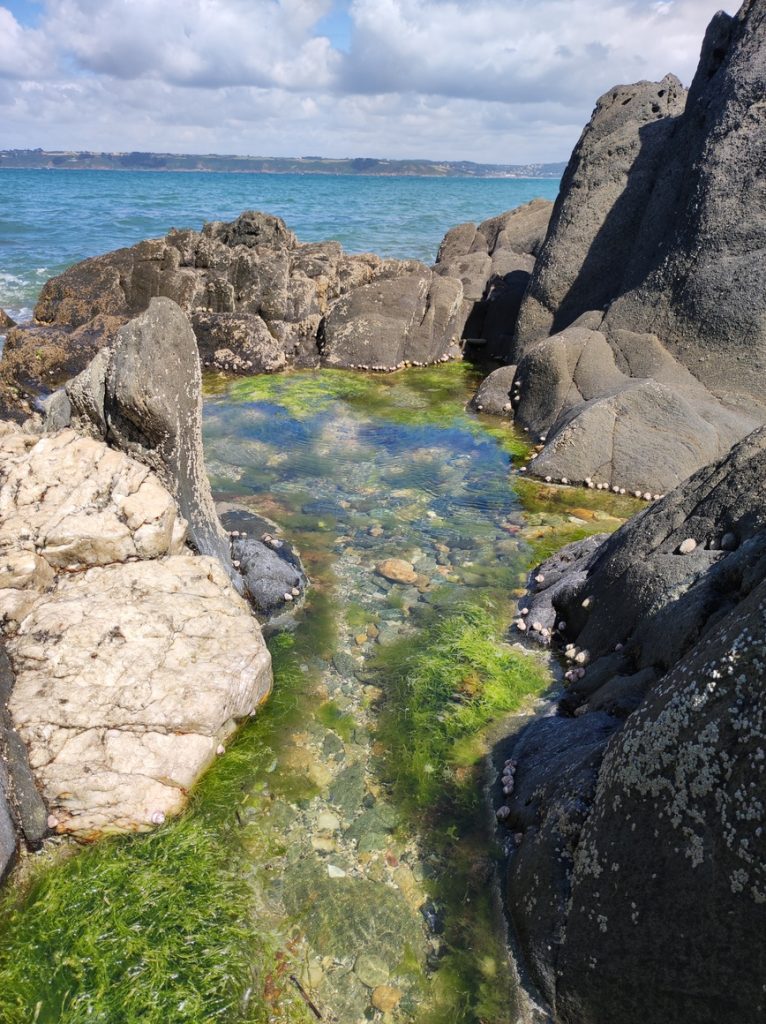
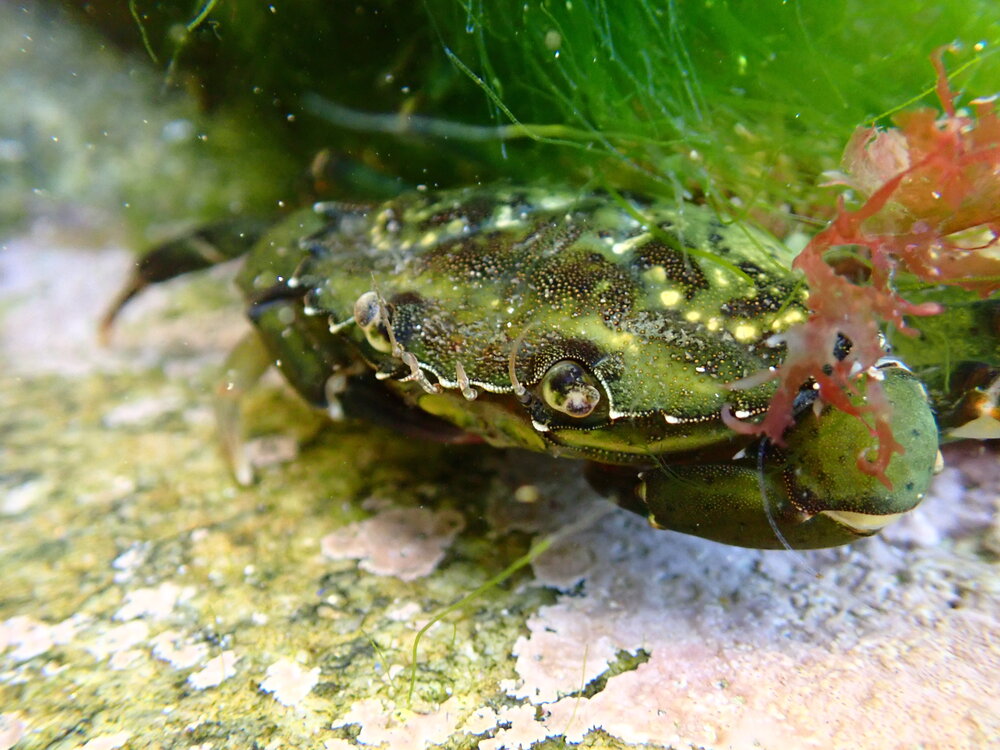
Several talks focused on the region’s intertidal habitats, and, if you’ve ever visited, you know exactly why. Originally, ITRS was a niche gathering focused on limpets, kelp, and fish, with fewer than 50 participants. But it has grown into a community of 400+ attendees in 2025. As a first-timer, I can say it was a fun, well-organized experience. Not every topic was my cup of tea, but I met inspiring researchers, expanded my view of intertidal science, and learned about new concepts I’d never heard of before (hello, ocean darkening!). And bonus: I got to know my own colleagues a bit more, which is always a win. Oh, and we were gifted original ITRS beer at the catered poster session, which was nice! So cheers, and onto whatever comes next! Big thanks to FYORD for awarding me a travel grant and making this amazing experience possible.
Katja
A second time at EGU
I arrive in Vienna on Sunday morning – like last time. It is my second time attending EGU. Like last time, I took the night train, but this time invested in the comfort of a Mini Cabin. Definitely an improvement to the (cheap) seats of the previous trip. Thus, I arrive in Vienna rested, hours before EGU officially opens. Last time, I enjoyed the unexpected summer weather and spent my time relaxing next to the Danube River. This time, it proves a good choice to arrive early, too. My poster needs some more work. By the end of the day (literally), I send it off for printing on site. With all distractions removed, I now feel ready to dive into EGU. It is good that I know my way around EGU already from last time, else my Monday would have gone to waste just for familiarizing myself with public transport, the venue, lunch queues and learning to navigate the massive programme (use the app!). Last time, I used Sunday for orientation, while the venue and its surroundings had not been overrun, yet. I expect to see almost 20.000 people in one place in the course of this week!
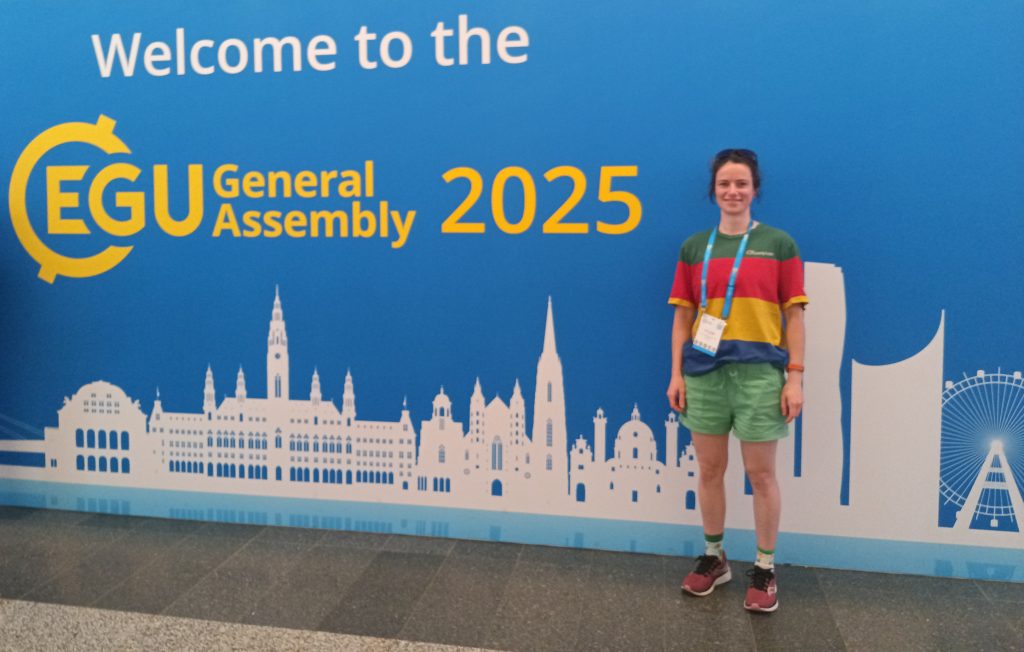
There are many highlights this week at EGU. I enjoy the presentation of my poster very much. I present a poster for the first time and dare to deviate from my institution’s template. The feedback is overall positive (but obviously improvements were noted, too). There is more interest in my poster than I expected from people outside my session. This session on Biogeochemical Processes and Air-Sea Exchange draws in almost everyone from the project I work in. We discuss the results on display from our joint campaigns. Within our project (BASS, spanning over eight institutions), I am lucky to have about 15 (!) fellow PhD students, who all work on the same campaigns (more or less). It is nice and inspiring, and it feels so comfortable to meet everyone again. There are two more sessions that are highly relevant to my topic. And this is probably as much as you can get out of such a big, broad conference. There are plenty more sessions I curiously attend to broaden and connect my knowledge to other realms of science. I learn that they use the same methods in space to detect the same trace gas I search for in the oceans! I visit this year’s Artist in Residence, but it does not resonate with me as much as last year’s resident. I love the “draw a fantasy map of your research” course! My map turns out surprisingly pretty.
A course on an open-source R package on exactly the processing I will be doing soon inspires me to ask lots of questions. It will have to show, but I think it brought me steps forward without a single line of code written, yet. Here, I also run into a friend who lives far away and enjoy the “working together” feeling it brings back. He is not the last one I run into unexpectedly! One morning, I use a rental bike to go to the venue, which is highly recommended (depending on where you stay, of course).
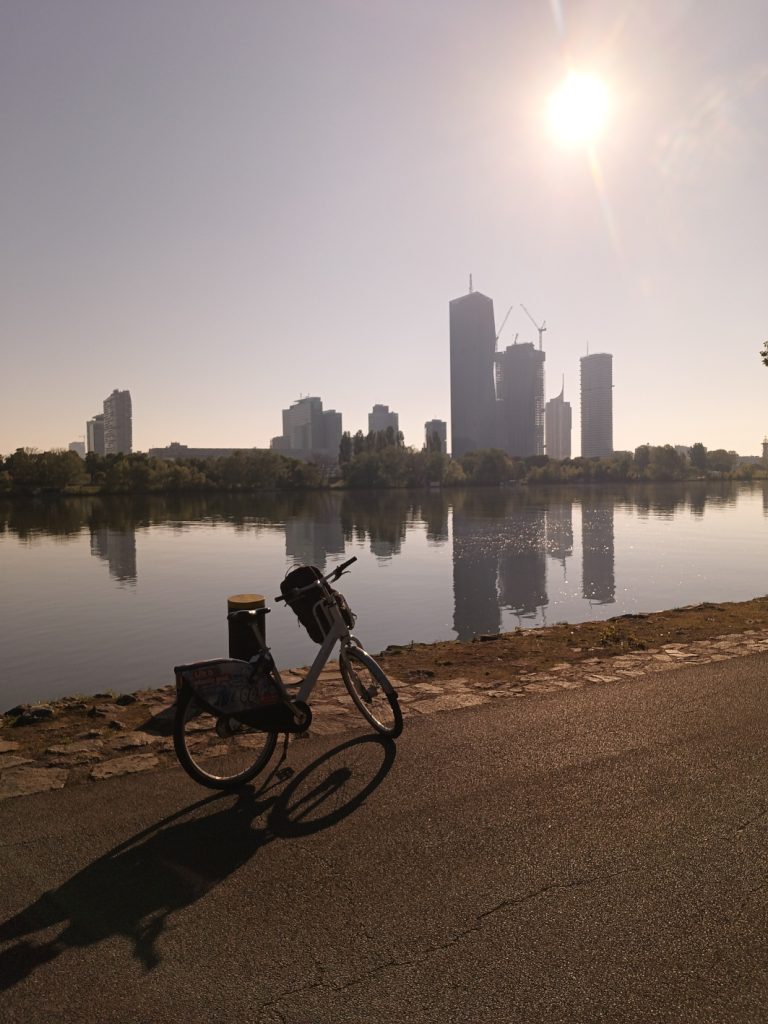
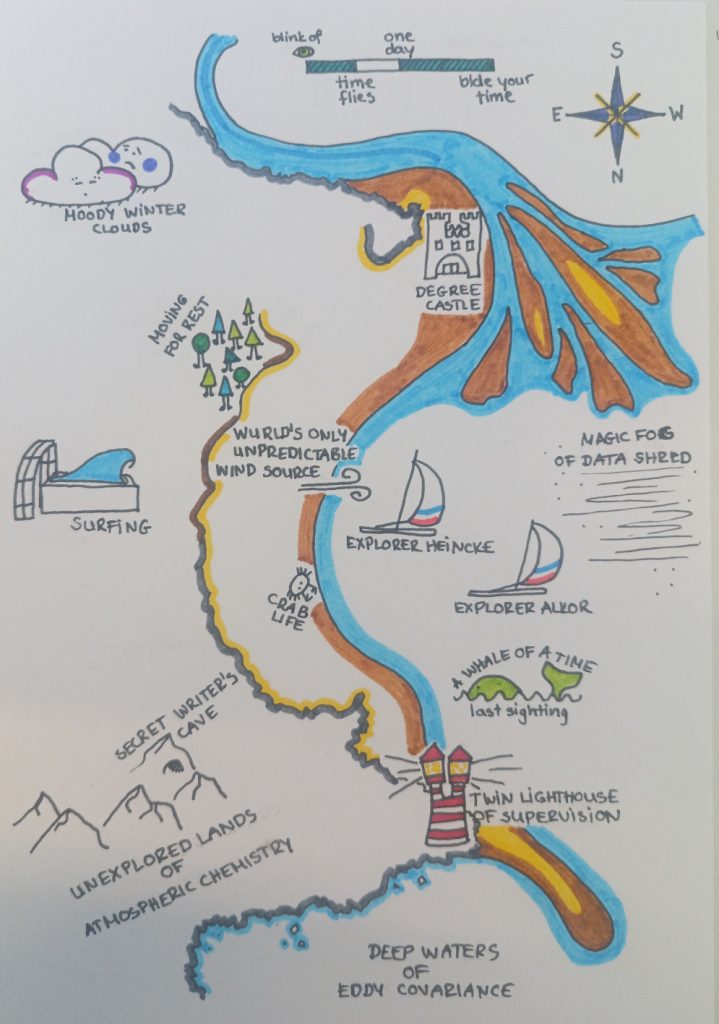
On most days, I go for a short swim during lunch breaks. I always carry my bikini when I travel. One day, I dedicate the afternoon to exploring the numerous booths in the entrance hall. (Do not plan that for Friday afternoon. They will be gone.) The representatives of the companies are so knowledgeable, I can easily spend an hour discussing nitty-gritty details and exceptional cases of my instruments, along with past and potential applications.
Like last time, I take the train right after the last session on Friday night. And like last time, I regret it, for two reasons. I went all the way to Vienna, but didn’t see much of it – again. More importantly, though, I return to the office the next Monday with no time in between to follow up on all the inspiration, let alone organize it into meaningful ideas. The everyday office hubbub drowns out all the great discussions and input, and my long list of notes from EGU gathers dust (admittedly, because of a cruise, but still). This time I promise myself, that I will extend my next conference stay for a few days. I want to ride the inspirational momentum, at least until meaningful ideas are identified and evolved into some kind of shape, clear and ready to be followed up on my return to the office.
Thanks to FYORD’s travel grant scheme, I could attend EGU a second time. Building upon my experiences from the first time, I could harvest much more this time, as I was not overwhelmed by everything every day anymore.
Yours,
Lea
ESA Living Planet Symposium
My name is Eike Schütt, and I am a PhD student in the Earth Observation and Modelling Group at the Institute of Geography, Kiel University. My research focuses on satellite remote sensing in the Baltic Sea, where I develop methods for mapping and monitoring seagrass and other shallow water habitats.
Thanks to the FYORD travel grant, I had the opportunity to attend the Living Planet Symposium (LPS) in Vienna, Austria. The LPS, hosted by the European Space Agency every three years, is the most important remote sensing conference in Europe. This year, it brought together around 6000 participants from all around Europe and beyond for a week of insightful discussions and networking.
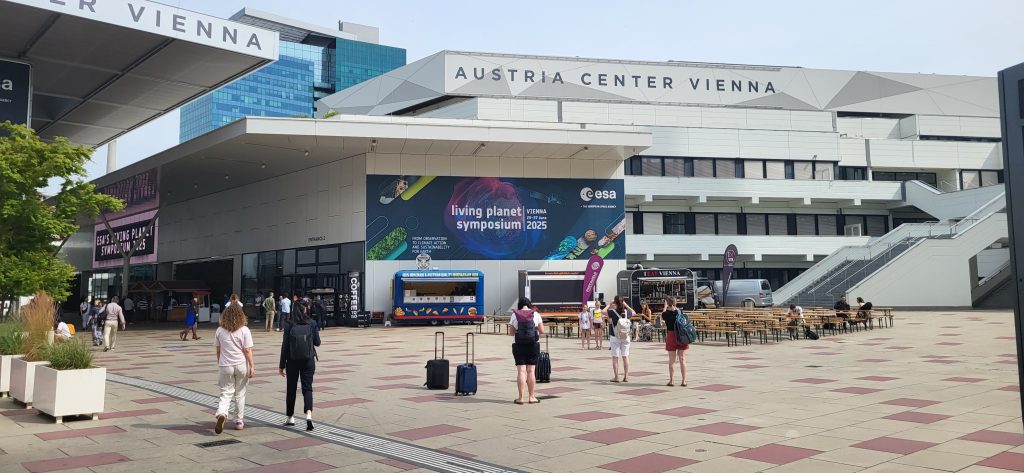
Before attending the LPS, my conference experiences were limited to smaller, mostly national events with a few hundred participants. I knew the LPS would be on a much larger scale, but the sheer size and scope of the event were overwhelming when I arrived on Monday morning. One of the biggest challenges was selecting which of the more than 20 parallel sessions to attend, as each time slot offered multiple interesting and important topics. As the week progressed, the sessions became increasingly relevant to my research niche, and I gained lots of inspiration for my own work from presentations, posters, and discussions with other researchers—I feel like my to-do list grew exponentially.
At the LPS, I presented my latest research via a poster that compares the opportunities and weaknesses of different satellite sensors for seagrass mapping in the German Baltic Sea using a new machine learning approach. I received lots of constructive feedback and engaged in many inspiring discussions that provided new perspectives and avenues for future studies. It was gratifying to see that my study addressed some pressing questions in my field and garnered more attention than I had anticipated.
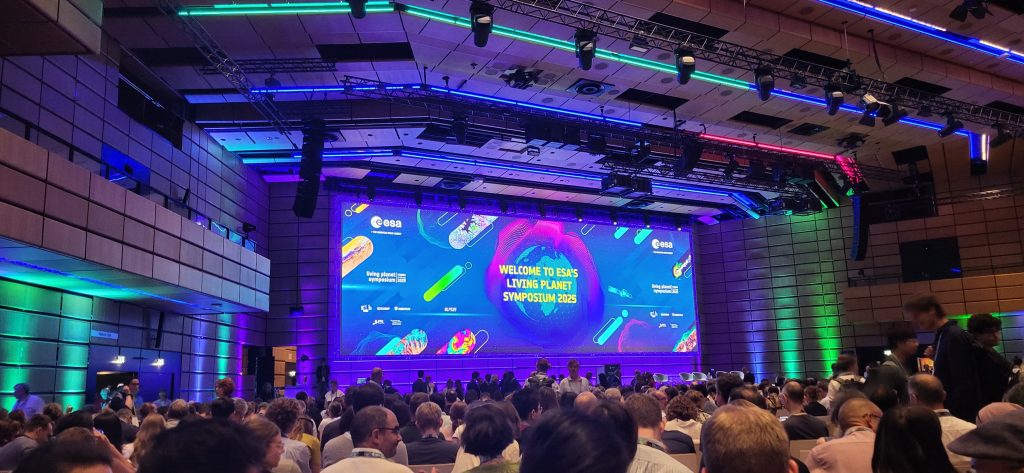
Reflecting on the week in Vienna, I can say that networking was a great success. Although it was initially daunting to connect with new people in such a large crowd, a small ECS party on the first night and more specialized sessions in the following days made it a lot easier. Given that my research niche is quite small, it was delightful to meet so many people working on related topics—a unique opportunity I believe is only possible at the LPS. The event was also a fantastic opportunity to reconnect with old colleagues and friends from across Europe. The networking did not even end on the night train to Hamburg, which was full of researchers with whom I had interesting discussions.
Attending the Living Planet Symposium was an enriching experience that offered invaluable opportunities for learning, networking, and presenting my research. The event’s scale and diversity of sessions provided a unique platform to engage with the global remote sensing community, gaining fresh insights into my field and related areas. I am very grateful to the FYORD travel grant for making my attendance possible.
Eike
